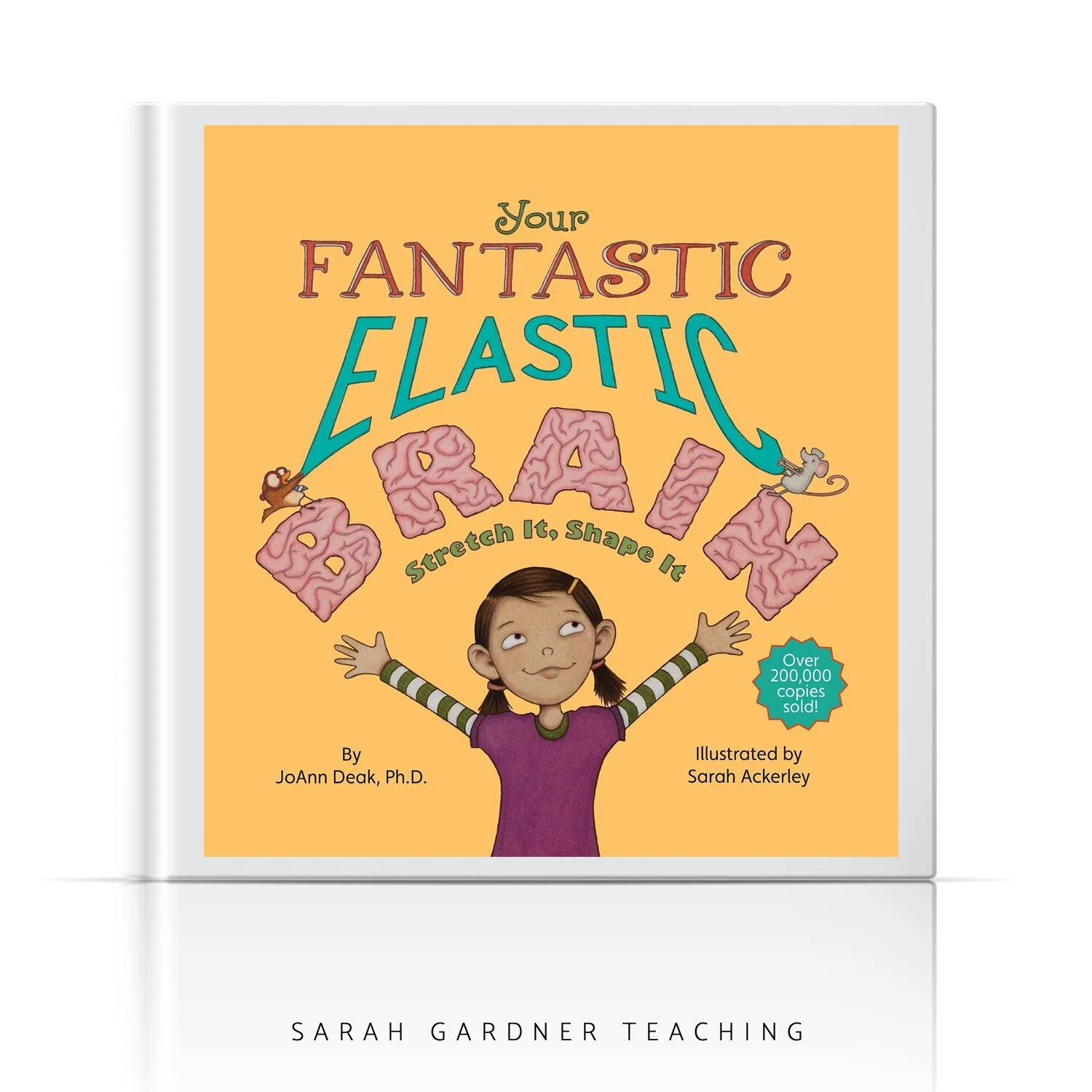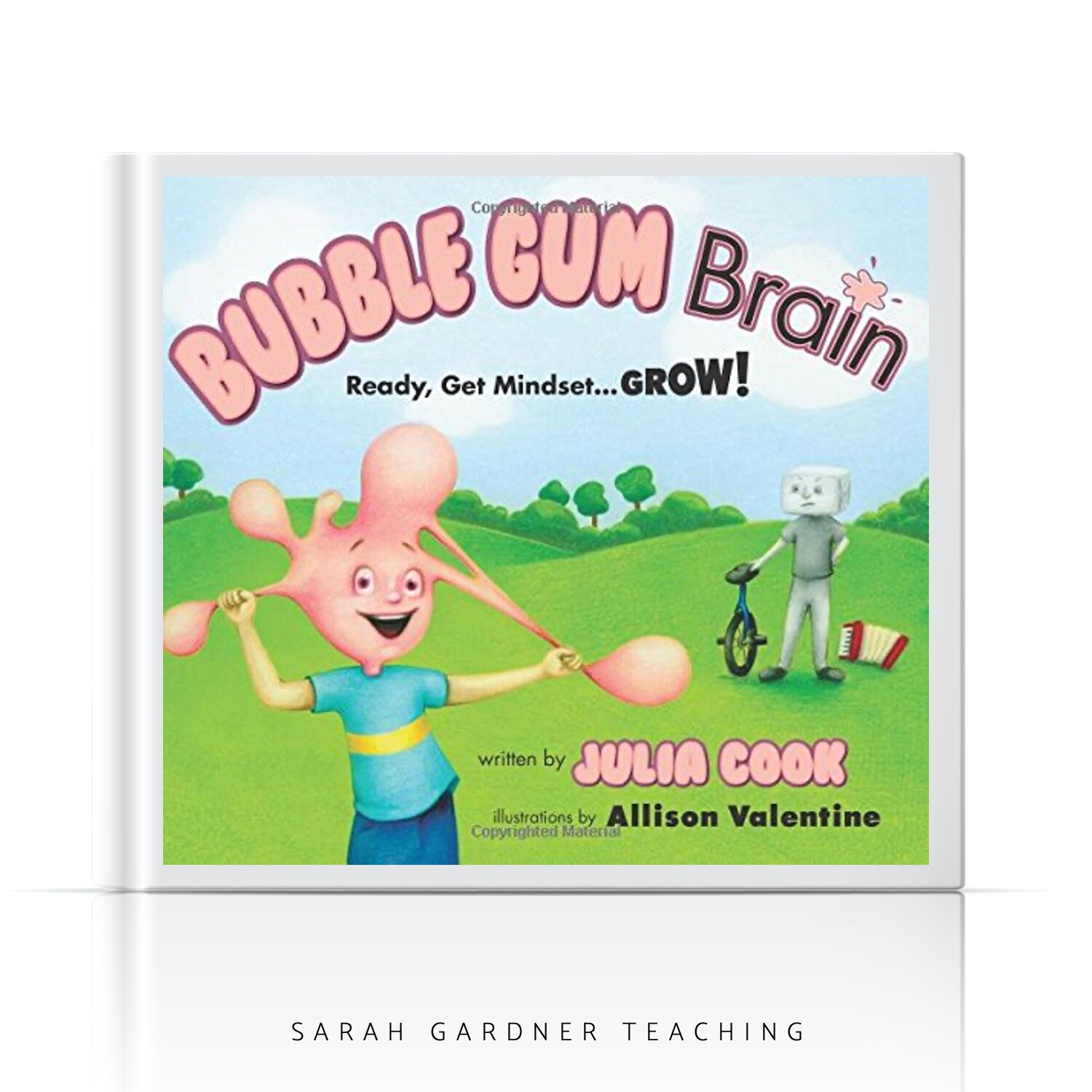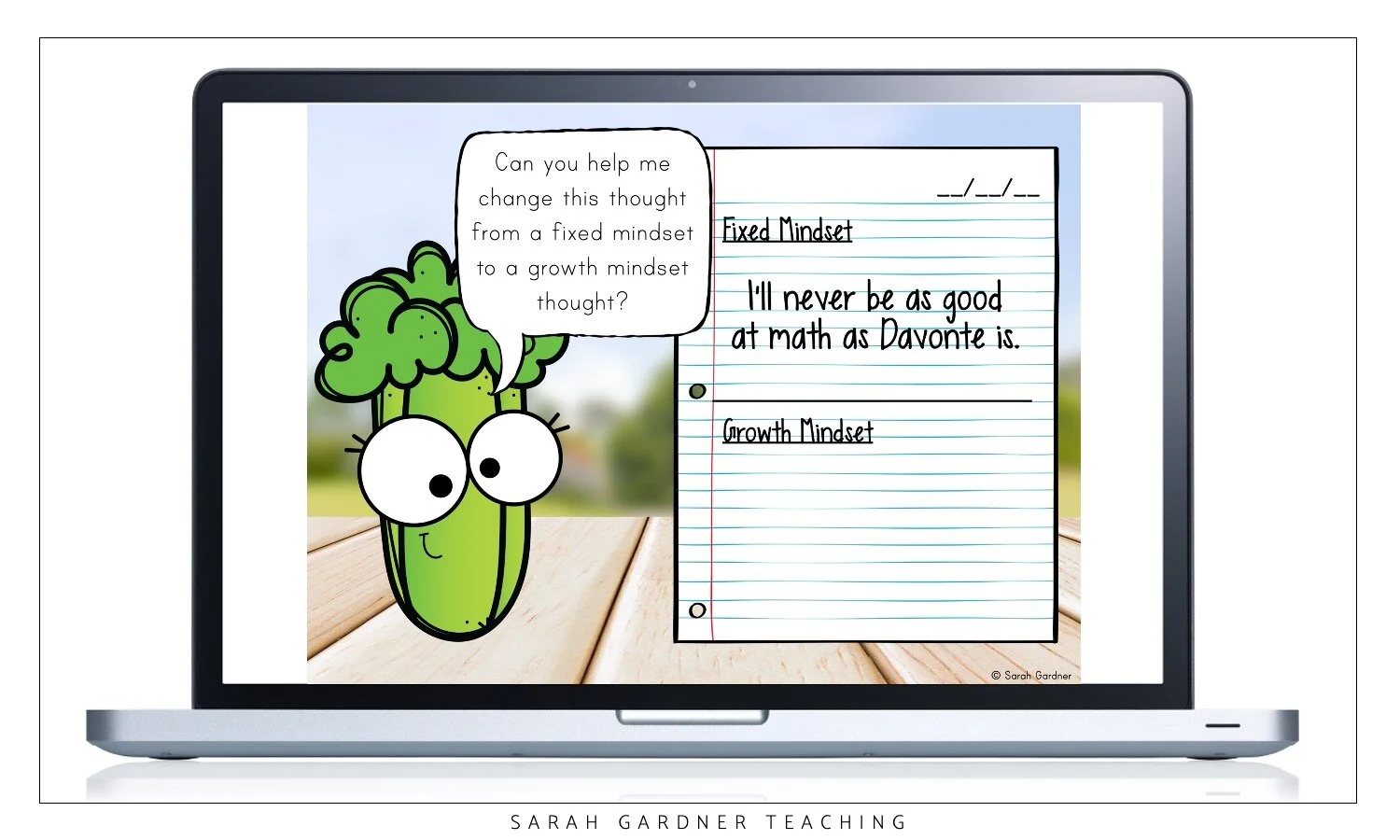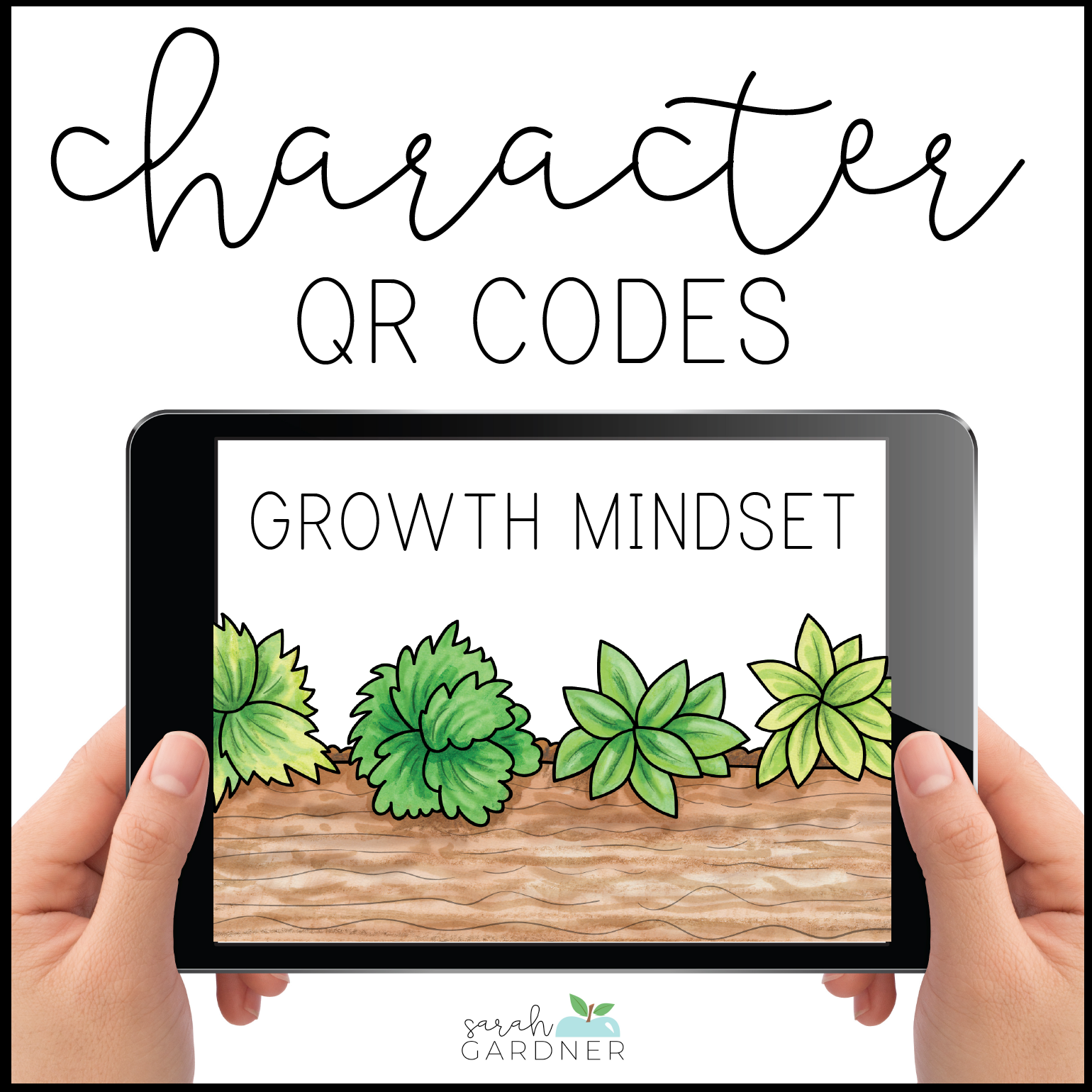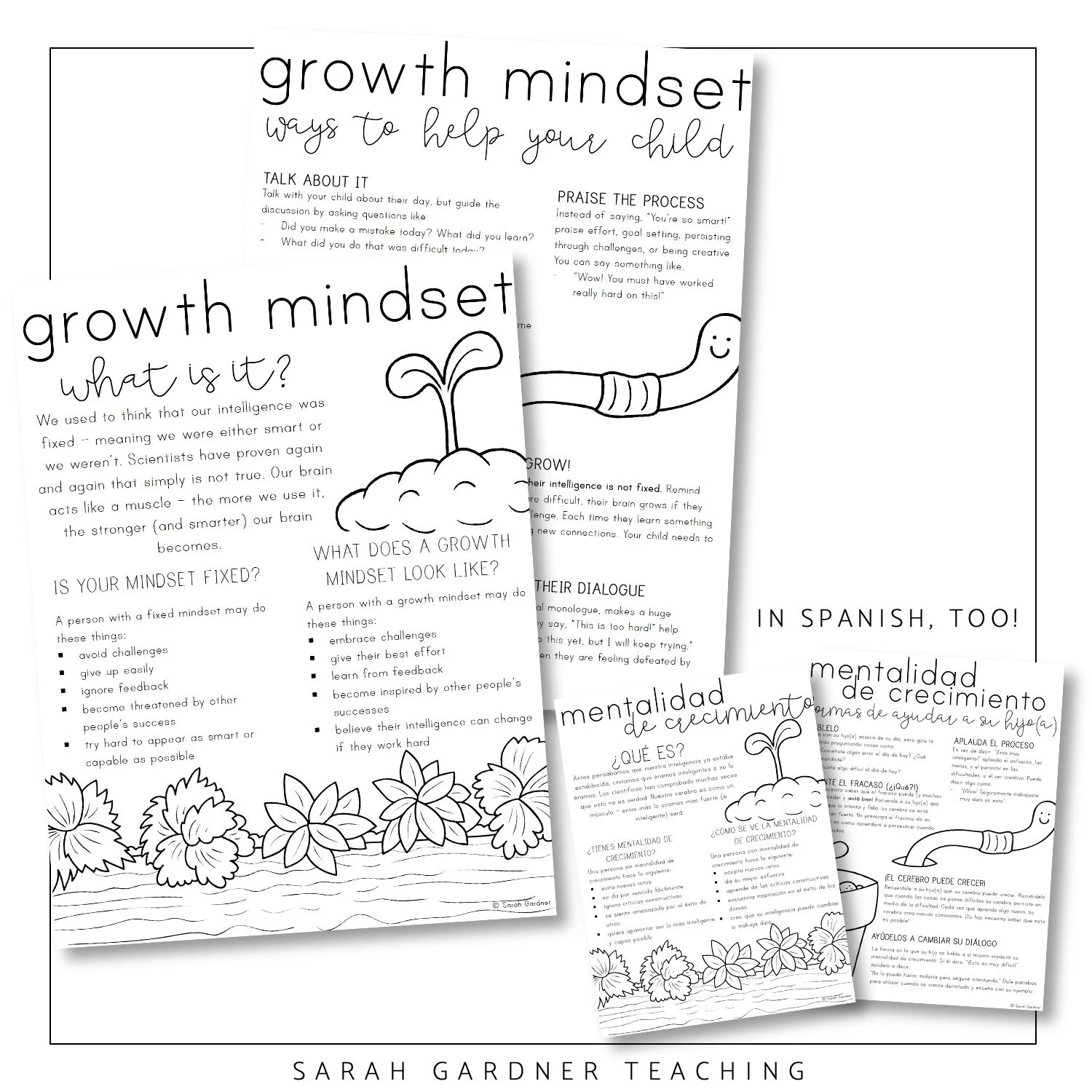The Ultimate List of Growth Mindset Books for Kids
Inside: Ten growth mindset books for kids that will transform your classroom
Growth mindset has been all the rage for several years now, and for good reason. Once I started explicitly teaching my kids about growth mindset, I saw huge changes within my classroom. Students went from being afraid of getting an answer wrong to jumping into a problem head-first, looking at things from all angles, and showing incredible persistence. Below, I’ve rounded up ten of my very favorite growth mindset books for kids.
Please note that this post contains affiliate links, meaning, at no additional cost to you, I will earn a small commission if you click through and make a purchase.
“Your Fantastic Elastic Brain”
by JoAnn Deck, Ph.D.
I use this book every. single. year. We can tell kids, “mistakes help us learn!” until we’re blue in the face, but this book actually explains why mistakes help us learn, what they do to our brain, and why they are so important. This book is chock-full of information about the different parts of the brain and how they can grow and change.
“Bubblegum Brain”
by Julia Cook
Julia Cook brings such an interesting and relatable twist to the concept of “fixed mindset” and “growth mindset.” The story follows Bubblegum Brain and Brick Brain, two kids with two very different points of view. Bubblegum brain likes to stretch, flex, and bend. He doesn’t worry much about making mistakes or taking risks. Then, there’s Brick Brain. Brick Brain is hard, inflexible, and is convinced theres’s not much he can do to change or grow. Bubblegum Brain shows Brick Brain just how much fun it can be to try new things!
“The Girl Who Never Made Mistakes”
by Mark Pett and Gary Rubinstein
Beatrice never makes mistakes. She’s a perfectionist through and through, and she’s so perfect that the entire town calls her, “The Girl Who Never Makes Mistakes!” But one day, things go terribly wrong for Beatrice. This book will resonate with the little perfectionists in your class and show them that it’s okay to make mistakes!
I love to use this story during the first week of school to develop our classroom “mistake plan” - we know they’re going to happen, so what should we do? We spend a lot of time talking about how we can support others when we see them make a mistake.
“Beautiful Oops”
by Barney Saltzberg
This interactive story shows young readers that any mistake can be beautiful. A torn page can become the mouth of an alligator and spilled paint can become a purple elephant, if only we are flexible and creative enough to see it.
“Jabari Jumps”
by Gaia Cornwall
Your students will love this story about Jabari, a young boy who wants so badly to jump off the diving board. He’s ready - he has his goggles, does his stretches, and climbs all the way to the very top. But Jabari is nervous and ends up climbing back down again. With a little encouragement from his dad, Jabari decides he is ready to take the leap.
“The Most Magnificent Thing”
by Ashley Spires
This story is about a girl with an idea - she is going to make the most magnificent thing. She knows just what it will look like and just how it will work - all she has to do it make it. She sets up her work space and gets started, but unfortunately for her, none of her attempts are magnificent at all - they’re all wrong. She tries, tries, and tries again, but then she gets MAD. She decides to quit, but her assistant (her cute little pug) convinces her to take a break and try again. In the end, she’s able to see parts of the wrong things that are really quite right - and uses them to create something magnificent after all.
This story is full of opportunities for extension and discussion - which is why I created a whole packet of activities to complement it. Check them out below!
“The Thing Lou Couldn’t Do”
by Ashley Spires
Lou and her friends are adventurous and brave, but when her friends want to climb a tree to play pirates, Lou isn’t so sure. Lou has never climbed a tree before and doesn’t think she can. She comes up with every excuse to stay down on the ground, but can she change her mindset and persevere?
“The Magical Yet”
by Angela DiTerlizzi
Your students will love this beautifully illustrated story about Yet - a magical creature who is there with us even though we may not know it! Don’t know how to tie your shoes? Yet is there! Don’t know how to ride a bike? Yet is right alongside you. DiTerlizzi personifies the concept of growth mindset with the magical Yet - “…with the Yet as your guide along the way, you’ll do all the things you can’t do today.”
“Thanks for the Feedback… I Think?”
by Julia Cook
This story is a unique take on growth mindset that I hadn’t considered before picking it up. What do we do with feedback? What do we do when someone compliments us? What do we say when someone gives us constructive criticism? This story follows RJ, a young boy who isn’t quite sure what to do with the feedback he gets. He learns that by being open to listening to feedback, he can grow.
“What Do You Do with a Problem?”
by Kobi Yamada
This story is all about a child with a problem. They’re not sure where it came from (he sure didn’t ask for it) and he’s not sure how to make it go away. He tries hiding from the problem, but it always finds him. Then, he decides to tackle his problem head-on and finds something surprising - an opportunity.
More Growth Mindset Resources for the Classroom
Mini-lessons are my favorite way to teach social emotional skills. If you’re anything like me, you don’t have a “social emotional time” built into your schedule, you just have to find the time to “squeeze” it in. Read alouds are great, but I’ve found the most success when I combine read alouds with videos and explicit lessons about growth mindset. Click below to snag a FREE mini-lesson all about growth mindset!
These QR codes are a great way to extend learning about growth mindset when you’re short on time. I like to tape them up around the room for students to scan whenever we have an extra minute (these work great for early finishers as well!).
Growth mindset is such an important topic and our students’ mindsets are probably very similar to those that they see modeled at home. Grab this free parent letter to explain fixed vs growth mindset to your parents, as well as give them ideas for how they can help foster a growth mindset at home!


